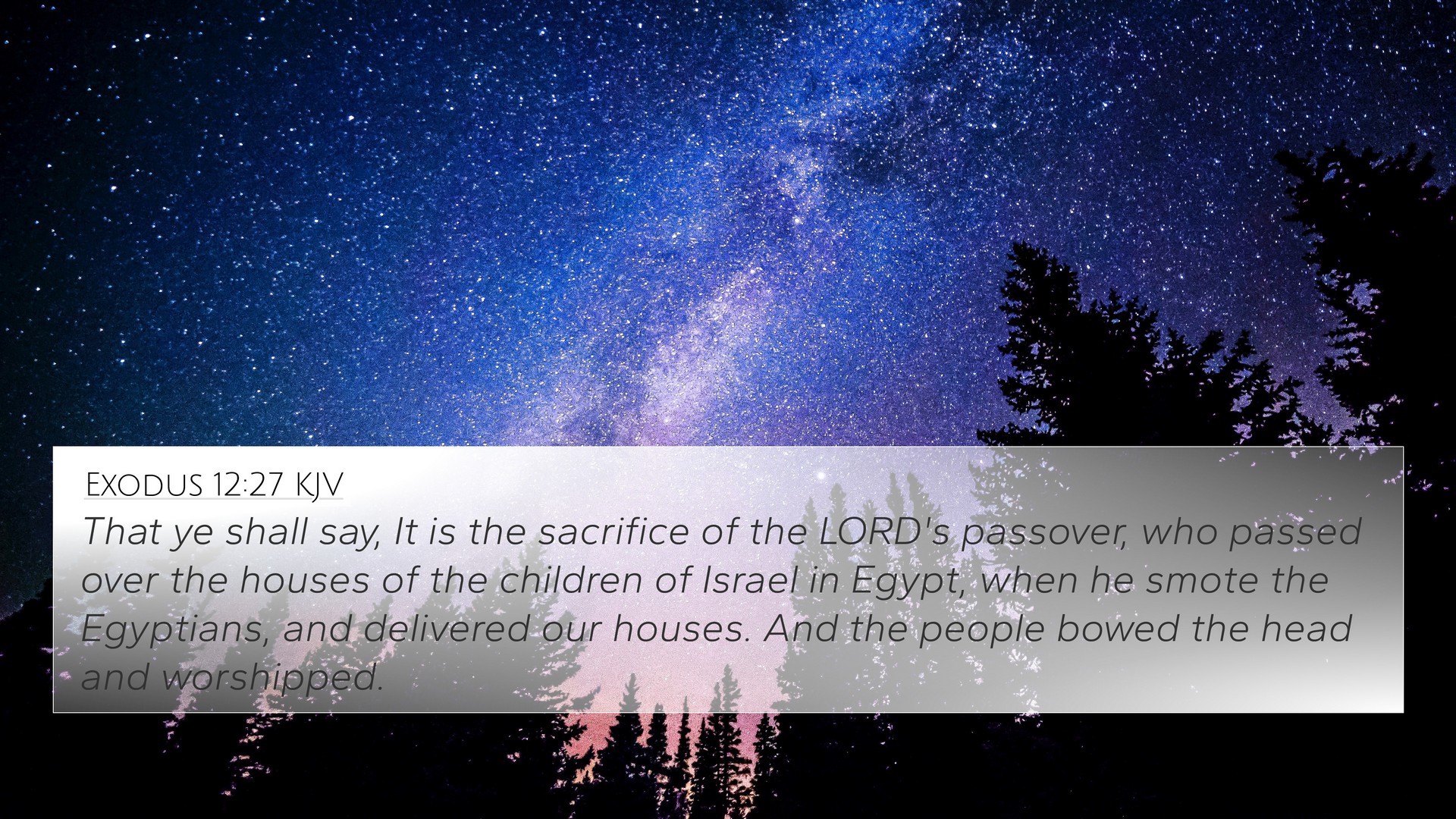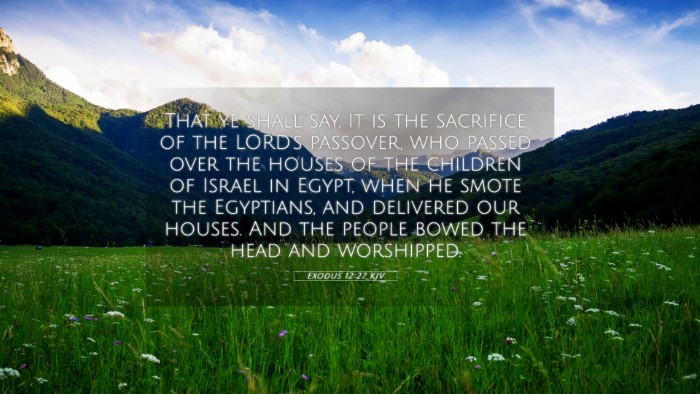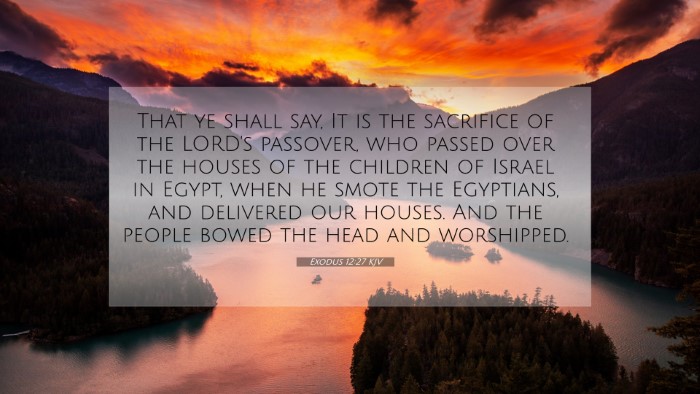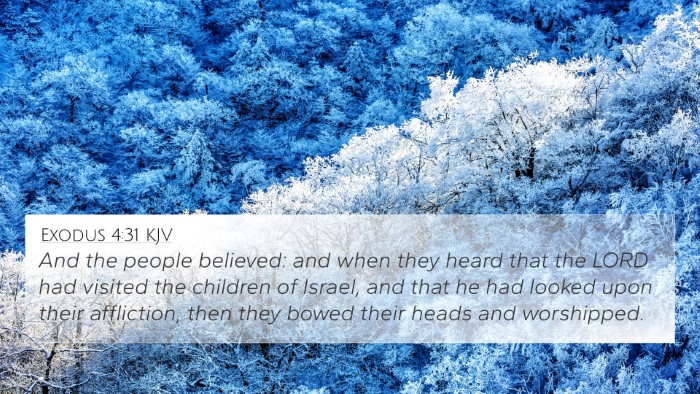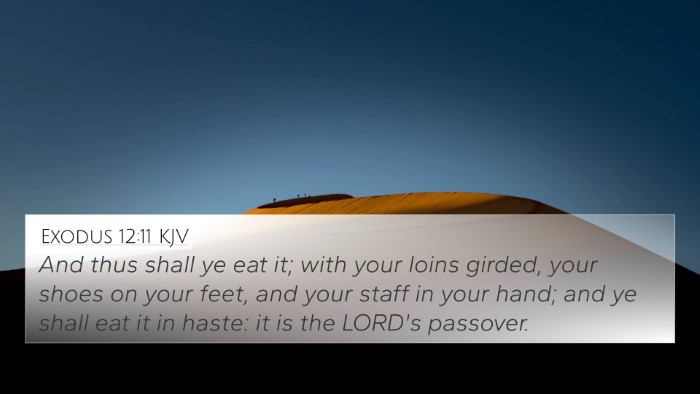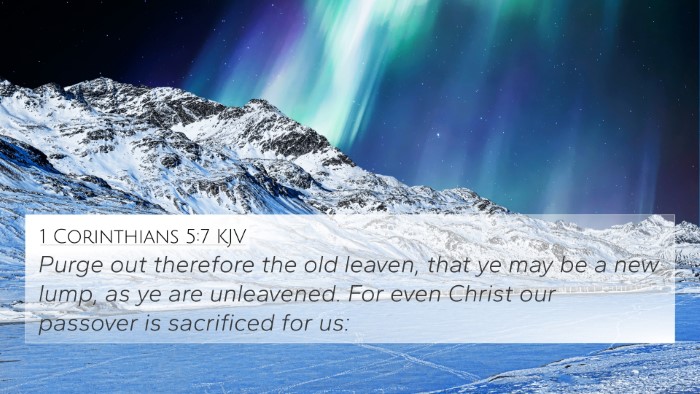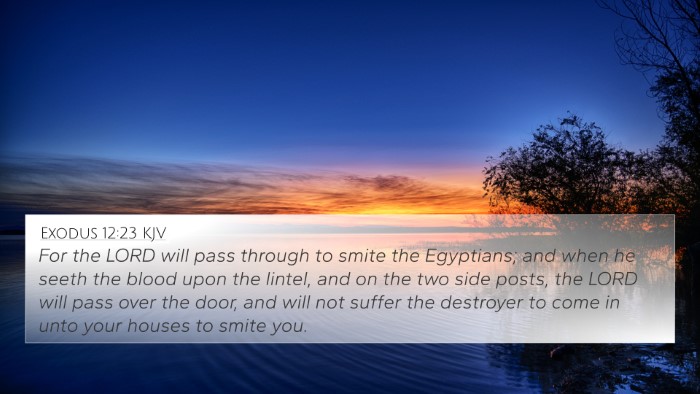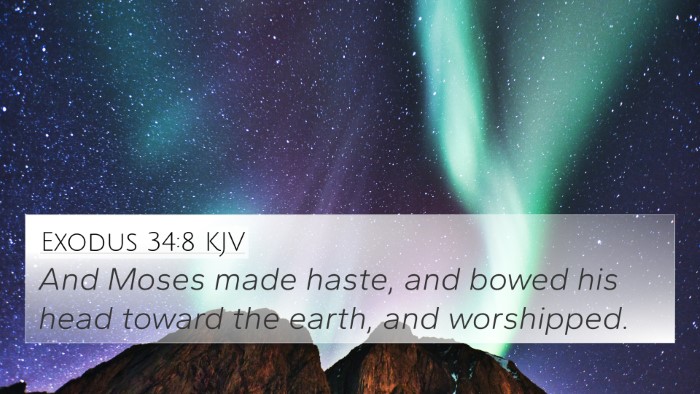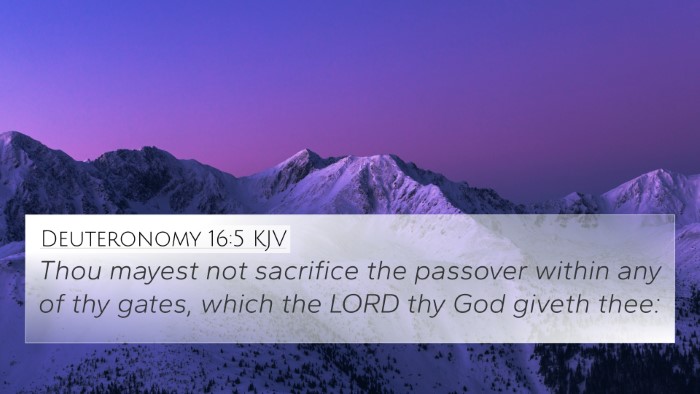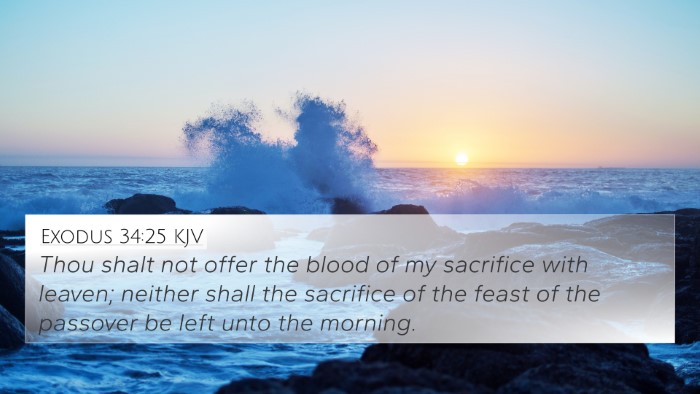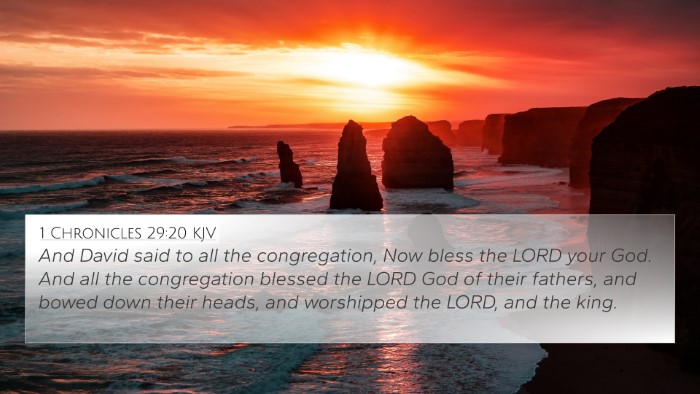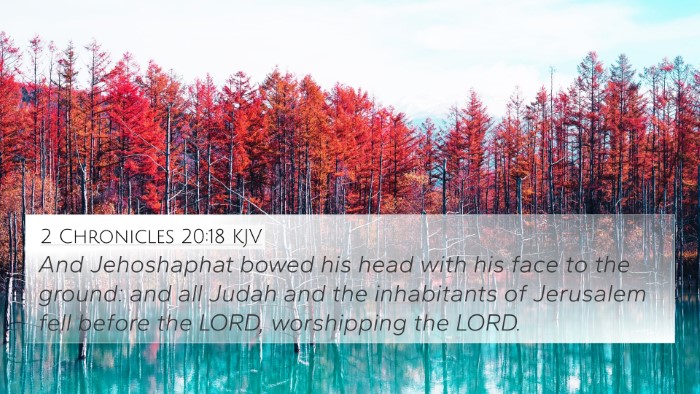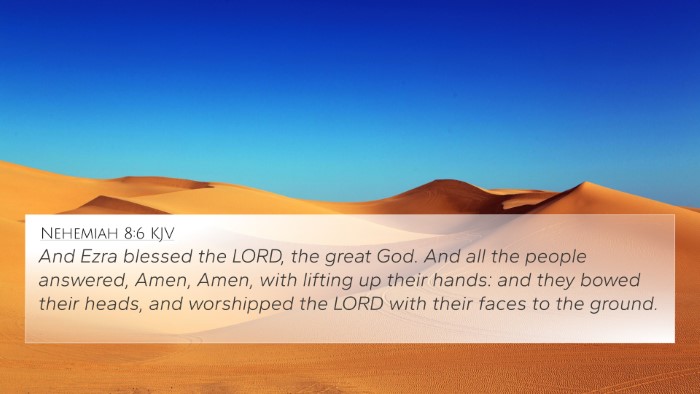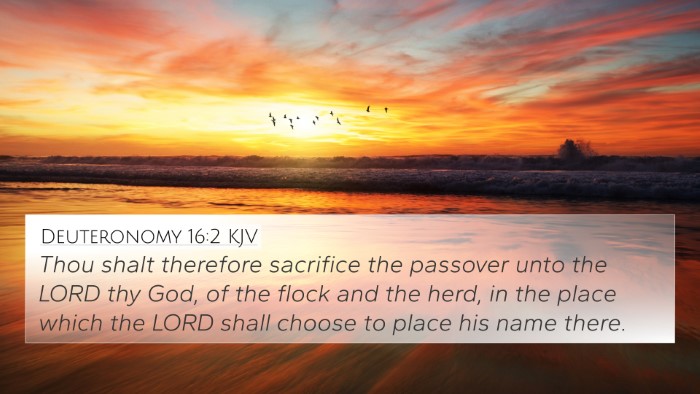Understanding Exodus 12:27
Exodus 12:27 states: "That you shall say, 'It is the sacrifice of the LORD's Passover, for he passed over the houses of the children of Israel in Egypt when he struck the Egyptians and delivered our households.'" This verse captures the essence of the Passover, a significant event in Jewish history and theology, which symbolizes deliverance and redemption.
Key Themes and Insights
- Divine Deliverance: The reference to the LORD passing over the houses signifies God's protection and deliverance from judgment, emphasizing His mercy towards His people.
- Significance of Sacrifice: The mention of a sacrifice points to the importance of blood as a means of salvation, foreshadowing the ultimate sacrifice of Christ.
- Commemoration of Redemption: The Passover is not just a historical event but a perpetual reminder of God’s saving actions, necessitating remembrance and teaching within families.
Commentary Synthesis
The insights from public domain commentaries provide a deeper understanding of this pivotal verse:
Matthew Henry's Commentary
Henry emphasizes the notion of the Passover as a sacrificial act that reveals God's love and faithfulness to His covenant people. He notes that this event demonstrates both the severity of God's judgment against sin and His willingness to provide a means of escape through the lamb's blood.
Albert Barnes' Notes
Barnes highlights the instructional value of the verse, stressing that its meaning is to be shared within the family. He encourages believers to recognize the significance of the Passover as a means of teaching future generations about God's deliverance and the importance of obedience to His commands.
Adam Clarke's Commentary
Clarke discusses the historical context of the Passover and its implications for understanding the nature of God. He asserts that the events surrounding the Exodus serve as a prototype for future salvific events, particularly in relation to New Testament teachings about Christ’s sacrifice.
Bible Verse Cross-References
Exodus 12:27 connects deeply with various other Bible verses, showcasing thematic Bible verse connections that enrich our understanding of redemption:
- Hebrews 11:28: Highlights the faith of Moses in observing the Passover.
- 1 Corinthians 5:7: Refers to Christ as our Passover lamb.
- John 1:29: John the Baptist identifies Jesus as "the Lamb of God."
- Romans 3:25: Discusses Christ's sacrifice as an atonement for sins.
- Galatians 3:13: Points to Christ redeeming us from the curse of the law.
- Exodus 12:13: Explains the significance of blood in providing protection.
- Luke 22:15-16: Jesus anticipates the fulfillment of the Passover at the Last Supper.
Cross-Referencing Bible Texts
To understand Exodus 12:27 fully, one can explore the interconnected nature of its themes through various scriptural cross-referencing. The critical connections between the Old and New Testaments reveal a deeper layer of theological dialogue.
Identifying Connections between Testaments
Understanding the links between Exodus and the New Testament illuminates how the sacrificial system established in the Old Testament finds its fulfillment in Christ. For example:
- The sacrificial lamb of Passover symbolizes Christ's role and sacrifice.
- The deliverance from Egypt parallels the salvation believers experience through faith in Christ.
Comparative Bible Verse Analysis
Through a comparative study of passages such as Isaiah 53 (suffering servants) and Revelation 5:6 (the Lamb of God), we can see how Exodus 12:27 serves as a foundational text for New Testament theology.
Conclusion
Exodus 12:27 serves as a rich resource for understanding God’s plan of salvation. By studying its meaning and significance in light of other biblical passages, believers can find a comprehensive Bible cross-reference guide that enhances their spiritual insight and growth.
Tools for Bible Cross-Referencing
Utilizing a Bible concordance and a cross-reference Bible study system can greatly aid in identifying connections between verses. Resources such as comprehensive Bible cross-reference materials and find guides are helpful tools for anyone looking to deepen their study.
